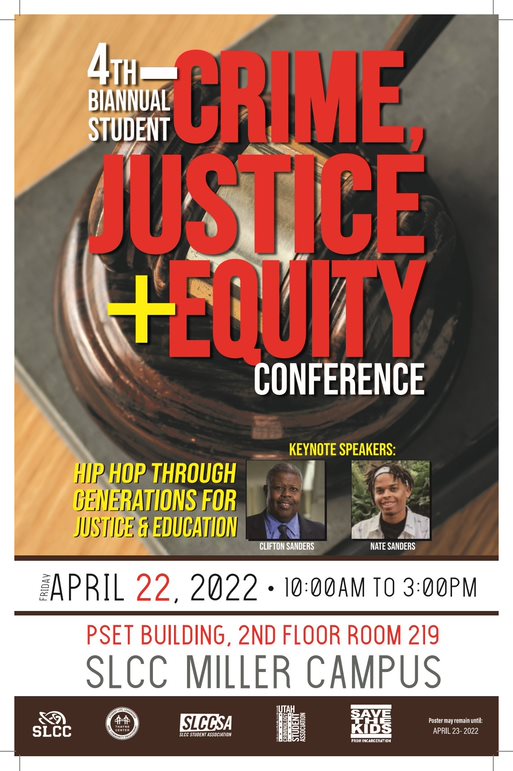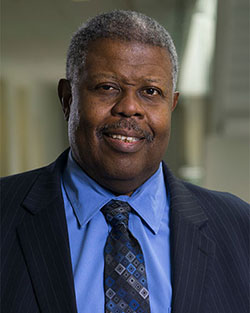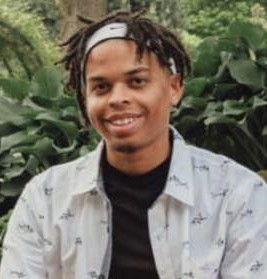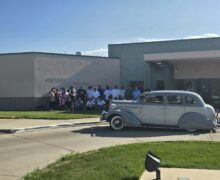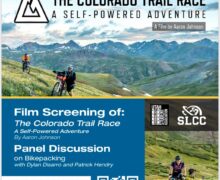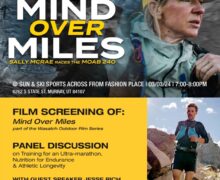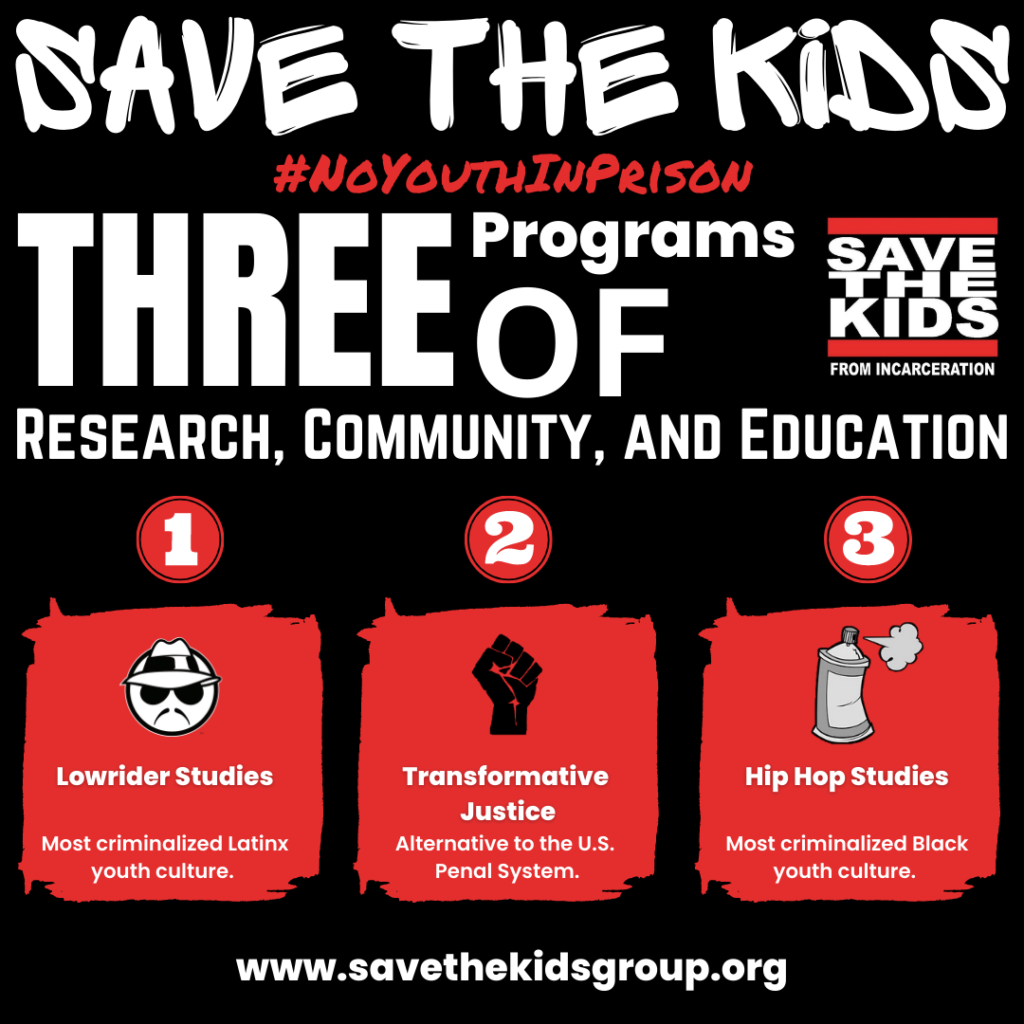April 22, 2022 – Biannual Crime, Justice and Equity Conference – Miller Campus, SLCC
April 22, 2022
4th Biannual Student Crime, Justice and Equity Conference
10:00am to 3:30pm
PSET Building, Room 217 and 219
Miller Campus, Sandy, Utah
Salt Lake Community College
FREE AND OPEN TO THE PUBLIC
SCHEDULE
SESSION ONE
ROOM ONE – PSET 217 – Chair – Cynthia Mellin
10:00am – 10:10am
Conference Welcoming
Dr. Anthony J. Nocella II
1. 10:10am – 10:20am
Fighting Animal Abuse
Rebekah Spendlove
Biography: Rebekah Spendlove is currently a student at Salt Lake Community College where she is
majoring in Criminal Justice. She graduated with honors from Alta High School. During her high
school career, she was a member of the Alta High School Marching Band and is now a member
of the University of Utah Marching Band. Rebekah is an avid animal lover and wants to fight
against the abuse and mistreatment of all animals.
Abstract: Animal abuse is a prevalent and ongoing problem in society, and it is not being taken care of to
the extent that it needs to be. There are laws that have been created to fight the abuse and cruelty
towards animals. Have the laws worked? Are they being fully enforced? Animals are just as
important as humans and should be given the care and love they deserve. The laws need to be
enforced and more action needs to be taken to protect our animals to the extent needed. This
paper will explore the big problem of animal cruelty and will suggest a way to help combat it. It
will talk about both domestic and animals in zoos and on farms. Animal abuse needs to be
stopped we have a long way to go to finally stop it.
2. 10:20am – 10:30am
Sexism
Keila Jauregui
Biography: Keila was born in Mexico and brought to Salt Lake City when she was 8 years old. She is a student at Salt Lake Community College pursuing a degree in Criminal Justice. Ever since she started her career at Salt Lake Community college, she found a passion for social justice. She has a huge interest in helping people who are incarcerated and wants to become an attorney to help those who need legal representation. Her favorite thing to do is to travel, and in her free time she enjoys walking with her dogs, watching movies, and going out to eat to new places with her spouse.
Abstract: This presentation will demonstrate the definition of sexism, it will show some of the issues that women are facing nowadays. There are some sensitive topics that we will look into such as rape, harassment, assault and murder. We will also see how women are discriminated by our society out in the work field and educational institutions. Finally, we will discuss a few ways on how we can fight against sexism for this and future generations.
4. 10:30am – 10:40am
Toxic Prison
Kat Rockwell
Biography: Katherine Rockwell is a sophomore at Salt Lake Community College, completing 2022 with
an associates of general education. She has ambitions to study anthropology, political science,
and activism at the University of Utah in the fall. Katherine grew up post-mormon in Draper,
Utah, then moved at age 14 to Salt Lake City where she still lives with her family. She went
to East High School and graduated in 2020. In her free time she likes to draw, write, sew, and
hike.
Abstract: This essay covers the topic of “toxic prisons” from a humanitarian perspective. It details the
types of toxic prisons that exist and the types of pollution they are affected by. It also
examines the types of political and social abuse in the prison system as well as the
consequences of these abuses. Furthermore, it shares the ways that diseases relating to a stay
in prison can negatively affect a person’s health permanently. It commentates on the negative
results of toxic prisons outside of the penal system. Finally it lists ways that toxic prisons
could be remedied and how Americans could begin to better understand the people inside
prisons.
5. 10:40am – 10:50am
Elitist Discrimination Needs to Change
Michael Farnsworth
Biography: Michael Farnsworth studies Political Science at Salt Lake Community
College—with intentions on finishing my degree at the University of Utah. He has interest in
Political Ideologies and has strong opinions in politics and takes courses to gain perspective in
other topics within the political science umbrella. He grew up in Kearns, Utah, and graduated
from Kearns High School in 2021. He likes to participate in political debate, listen to and make
emo music and punk rock, and loves travelling.
Abstract: The problem with elitism in the United States Criminal Justice system is notable, one of
the most prevalent side effects is hyperincarceration. This mentality which is streamlined by the
ruling elite puts thousands of people behind bars almost daily. The root cause of this societal
issue is most likely an overall bigotry towards marginalized groups. Nixon’s war on drugs and
crime was merely a guise to take the war to equal rights movements, for example. America now
has the highest prison population in the world due to hyperincarceration tactics. As a society, the
perpetuation of discrimination in the favor of elitist agenda needs to be parliamentary changed to
be more appropriate for the crime which was committed.
6. 10:50am – 11:00am
Systemic Racism in the Criminal Justice System
Jack Thomas
Biography: Jackson Thomas is a freshman student at Salt Lake Community College and is currently
studying Journalism and Digital Media. He aspires to work in sports media after his college
experience for ESPN or NFL Network. He was born and raised in Salt Lake City, Utah, and has
loved most of his time here. In his free time, he likes to work out, spend time with his friends,
and talk about and play football and basketball.
Abstract: This essay will discuss the history of systemic racism in America, it will show and define
what systemic racism is and why it is a thing in modern-day America, while also going over how
to combat the problem at hand which is systemic racism. Another topic this essay will discuss is
different examples of systemic racism by the United States Criminal Justice.
11:00am – 11:20am – Q and A
ROOM TWO – PSET 219 – Chair – Wendy Mendoza
1. 10:00am – 10:10am
Marijuana Oppression
David Rodgers
Biography: David Rodgers is a student at Salt Lake Community College. He is taking 7
classes during the spring semester. He has extreme interest in discovering more information on
why marijuana has a rough history. During his free time, he likes to do Jiu Jitsu and Muay Thai.
He has some family experience of a relative taking marijuana and how it affected his life.
Abstract: Marijuana has had many backlashes from the public in the U.S. It is viewed as
dangerous drug that will ruin your livelihood, friendships, and make you lazy. It was called “the
gateway drug” the starter pack to start your journey of hallucinogen. During the 70’s and 80’s
the war on drugs began, marijuana was one of top drugs to considered illegal. United States was
on high alert in search for individuals who were in possession on hard drugs like marijuana and
incarcerate them for many years some even life sentences. As years go by, we are starting to
realize that marijuana is not bad as we thought 40 years ago. Marijuana is being legalized in
many states for medical use and even recreational purposes.
2. 10:10am – 10:20am
Ageism as Discrimination
Brady Hendrickson
Biography: The author of this essay is currently enrolled in Salt Lake Community college. Currently he is in his first semester as an attending student. He is from Bountiful Utah and has lived their lives. He is the youngest of two, having only one older sister. He was at the age of twenty-one when this essay was written. He has a lot of hobbies and interests. One of those interests is in the field of criminology. This interest in criminology may lead him to pursue a career in the field of criminology.
Abstract: This essay is a critical thinking analysis of Ageism. Ageism is the discrimination and
degradation of people based on their age whether they are elderly or adolescent, it affects and
could affect everyone at any stage of life. The method of analyzing that will be used will be as
follows. First, there will be an introduction to what social issues are. Secondly, we’ll discuss
what ageism is. Thirdly, well go over the causes and the reasoning behind agism. Fourth, there
will be an explanation of the effects ageism has on communities and the specific people who are
affected. Fifth and finally, there will be a conclusion given discussing what has been stated and
talked about throughout the entirety of the essay. Social issues have a deep effect on society and
the country as a whole. The findings that will be discussed will describe how widespread ageism
in conclusion ageism affects everyone in the world at some point in their lives. Issues like this
that are left unchanged and unattended will continue to harm and hurt people and society as a
whole.
3. 10:20am – 10:30am
Racism and The Jim Crow Laws
Blake Henrie
Biography: Blake Henrie is a scholar currently studying generals to achieve the degree of associates.
He wants to pursue filmmaking eventually but is currently working on a business to grow his
own film company as well as other parts of that industry such as modeling, design, creative
direction, fashion, and photography. Henrie hopes to pursue his dreams in a scholarly and
professional matter by learning about social issues as well as getting creative to make changes
necessary for change but also for the growth of others.
Abstract: In a world of chaos, we must come together. To understand the roots of the problem is to
understand the chaos, and in those, solutions can be found. A group of Canadians have criticized
the criminal justice system for years demonstrating how deep racism goes. This racism goes all
the way back to the civil war and in this year alone people are still experiencing a comparable
situation as the 13th amendment, Jim Crows laws, are still in effect. The fact that Jim Crow
allowed slavery upon imprisonment after slavery had been abolished is why we are where we are
at today. To face the Jim Crow laws head on, digging into the root of the issue is the
incarceration system. The incarceration system is where our people are enslaved, beaten,
tortured, raped, anything that could be thought of. This is not just done by the other inmates but
also by the guards who have been corrupted, scarred, and undervalued. In America people of
color live in a hell that they cannot change. It begins with the people to find the solution, and to
fight it. It must be done in the chaos. Only then will it begin to change, and it cannot be done by
black people alone, it must be a part of everyone.
4. 10:30am – 10:40am – Kiyani Benally
5. 10:40am – 10:50am
Mental Health for LGBTQI+ Community
Nhu Tran
Biography: Nhu Tran is an English as a second language student, she comes from Vietnam. She
graduated from Granger High School and is a freshman student in Salt Lake Community
College. Her major in Salt Lake Community college is Health Science. She has a plan to become
a pharmacist in the future. Nhu Tran likes to draw anime, a Japanese style cartoon, and play
video games when she has free time. Her favorite subject is physics, but she will transfer to The
University of Utah and study her main subject as chemistry.
Abstract: Sexual orientation is a term that relates to the degree to which men or women are
sexually attracted to one another. Homophobia is one type of oppression. Homophobia is defined
as a set of behaviors, feelings, and unfavourable attitudes toward sexual differences and people
who identify or are believed to be LGBTQI+. The social norm is one relevant and current social
problem in the U.S. criminal justice system that promotes oppression. Social norm includes the
thoughts of society, the standard that society tries to put on humans to fit the norm and argue
things that go against the norm or standard. According to the findings of this meta-analysis, LGBTQI+
people are two and a half times more likely than heterosexual people to experience mental health
problems at some point in their life.
6. 10:50am – 11:00am
COVID-19 And The Attack On Asian-Americans
Trinh Cao
Biography: Trinh Cao is a 22-year-old college student from Vietnam. She moved to the US to settle down
with her family at the age of 17, so far she has been in the US for almost five years. After
graduating from high school at Granger High, Trinh is currently majoring in accounting and
business. She spent two years studying ESL at Salt Lake Community College. In addition to
studying and working part-time, she likes to spend time with family and friends to enjoy life
after stressful school hours. Sometimes she also enjoys time alone and is a bit of an introvert.
Abstract: The COVID-19 pandemic has been and is a hot topic around the world today, along with endless stories and controversies. Millions of lives have been taken across the globe, leaving a negative
impact on those who have suffered. Maybe right now, the number of cases has been reduced, but
the consequences of the pandemic are still there. The level of danger of Coronavirus when
people catch it and its persistent symptoms, consequences are what people are especially
concerned about in the midst of the pandemic crisis. Not only that, there are some broader
perspectives outside of society that people are facing during the pandemic period. The lockdown
and restrictions on entry and exit, the closure of businesses, led to economic stagnation, hundreds
of thousands of people and millions of people lost their jobs, disrupting the lives of many people.
Another social issue that is worth worrying about in recent times is racism against Asian-
Americans people. In the mass media, it is easy to see articles about Asian people were assaulted
on the streets during the COVID-19 pandemic. In some cases, they were beaten to death in the
hospital. Justice is evident that they deserve to be received and treated properly.
11:00am – 11:20am – Q and A
SESSION TWO
ROOM ONE – PSET 217 – Chair – Tia Mondragon
1. 11:30am – 11:40am
Economic Inequality
Tu Tran
Biography: Tu Tran is a Vietnamese girl who immigrated to the US in 2016. She first moved with her
parents and her sister to Utah, USA, when she was 16 years old. She then attended a local high
school called Granger High School. Here she completed her three years of high school. After
graduating from high school, she attended Salt Lake Community College with a major in
pharmacy and plans to transfer to U of U for a 4-year degree.
Abstract: Inequality and class divisions are among the darkest aspects of human society from time
immemorial. In human society, inequality can be said to occur everywhere: within families,
villages, schools, regions, cities, countries and between nations. Inequality also occurs in many
different aspects such as economic, political, culture, education, and law, etc. Standing between
rich and poor, people often favor those who are rich and trample those who are poorer than them.
Between whites and people of color, too, there are always injustices that can be obvious or
hidden. In many countries around the world, especially in Asia, inequality occurs when parents
give preference to sons over daughters. Law is justice, but sometimes that justice is only for the
rich and powerful. School seems to be the most beautiful and hopeful place, but it turns out that
it is the beginning of all injustice. The causes of social inequality are often economic, gender,
and racial inequalities. Inequality arises because of human greed and selfishness. Therefore, it is
not possible to completely remove inequality from the human world. We still can do some things
to prevent and reduce the amount of inequality.
2. 11:40am – 11:50am
Lilly Haines
3. 11:50am – 12:00pm
Reintegration into Society
Brody Ross
Biography: Brody Ross is currently 19 years old and is attending Salt Lake Community College.
Brody is a full-time student and works a part time job along with it. He has lived in Utah his
whole life and loves all the different qualities Utah brings. Brody likes to golf, lift, and hang out
with friends in his free time. Currently, Brody is currently taking general course at SLCC with a
future of transferring to the University of Utah. He does not have a set goal of what he wants to
later accomplish, but he is interested in finance and management.
Abstract: The United States criminal justice system has many problems and issues, one of the
largest and undergoing would be the reintegration process into society. There are more issues
that come alongside the reintegration process, such as recidivism. The problems that are related
to this topic are the economic and social inequality challenges. The way the system currently is,
it is almost impossible to find a sustainable job. Family is forced to financially support their
loved ones, which perishes the relationship. The main purpose of this research is to bring
awareness to the reintegration process, and to show how society is set up to oppress and neglect
these ex-offenders. The lack of employment and social norms only continues to feed the loop of
poverty and the rate of recidivism. The disadvantages that are implied to being imprisoned are
already extreme and adding social and economic reform is way to add severity to the situation.
Social and economic adjustments, more resources provided by parole, and the elimination of
stigma towards ex-convicts can contribute to the reconstruction of the reintegration process.
4. 12:00pm – 12:10pm
Mass Incarceration
Gavin West
Biography: Gavin West has been born and raised in Salt Lake City Utah, and is a 19 year old student
at Salt Lake Community College. He is a very active person and enjoys doing things such as
skiing, biking, skating, working out, and a variety of other outdoor activities. Currently, Gavin is
working on general education courses at SLCC with a plan of later transferring to the University
of Utah. He does not have a set goal of what he would like to become just yet, but is interested in
business, finance, and economics.
Abstract: In the United States criminal justice system there lies many problems and flaws, one of
these major problems being that of mass incarceration. The United States holds more
incarcerated people than any other country. While it is a major issue to have so many people
behind bars being punished instead of helped in many cases, there are a large amount of social
problems that result from mass incarceration. This has been found out through researching the
statistics of economic and racial inequality within the criminal justice system, and observing the
opinions given by scholars working towards reform of the criminal justice system. The ultimate
purpose of this research is to pinpoint prominent social problems that stem from mass
incarceration, state the causes and effects of these problems, and formulate viable solutions. The
disadvantages that people are held to when convicted or imprisoned are fairly drastic to begin
with. When mass incarceration as well as the racial and economic inequality are added to the
equation, there comes a major obstacle. The continuous loop of inequity is only furthered by the
dilemma of mass incarceration in the United States. Punitive reaction is used in far too many
areas in the criminal justice system, voiding the effect in many situations where striving for
equity would be the best possible solution.
5. 12:10pm – 12:20pm
Homophobia in the U.S. Criminal Justice System
Kaiden Ray
Biography: Kaiden Ray is a twenty-one-year-old student that is currently enrolled at Salt Lake
Community College. Kaiden wanted to write about this topic because many of his friends and
family members are members of the LGBTQ+ community. He is ambituses about fighting for
LGBTQ+ rights and wants to help reduce the amount of hate towards this community. Kaiden
believes that one of the biggest reasons there is hate against the LGBTQ+ community is due to
the masculine lead society. He has an opinion that no one has the right to control someone else’s
sexuality and the gender they want to identify as.
Abstract: This essay explains what homophobia looks like in the U.S. criminal justice system, and
the different effects that it can have on LGBTQ+. Police, media, and prisons have all inflicted
discriminatory acts against LGBTQ+. Police have harassed LGBTQ+ with verbal slurs and has
gone so far that they physical assault them. Anti-queer murder cases have also not been talked
about from mainstream media, which has also led police departments to not fully investigate
these cases. This social problem of homophobia has had major affects on LGBTQ+ victims,
which has left both physical and mental effects. Conversion therapy is another form of harassment on LGBTQ+ that can have a major effect. Many times, this conversion therapy is based on religious beliefs, because of laws passed to protect underage LGBTQ+ from receiving conversion therapy. Anti-queer violence has led to murders, like the case on Harvey Mild. They were a gay activist in San Francisco, California,
who was murdered by is former conservative supervisor who did not agree with Milk. Milks
death lost funding for many LGBTQ+ support groups. Not only was funding lost, but many
people were scared to come out publicly as LGBTQ+. With the LGBTQ+ community growing
there has been more support groups available to help victims.
12:20pm – 12:40pm – Q and A
12:40pm – 12:50pm
AWARDS – Room 219
Awards Chaired by: Anthony J. Nocella II, Cecile Delozier, and Stephanie Hoffman
12:50pm – 1:30pm
LUNCH – Room 219
Pie Pizza and Juice Facilitated by: Angela and Cynthia Mellin
SESSION THREE
ROOM ONE – PSET 2017 – Chair – Keila Jauregui
1. 1:30pm – 1:40pm
Homelessness in America
Krista Spurgeon
Biography: Krista comes from a small town called Fort Scott, Kansas and graduated from high
school in 2015. She currently attends Salt Lake Community College and is in her second
semester. Krista is interested in furthering her education to work with at risk youth and children
in our foster care system. She enjoys volunteering at Primary Children’s hospital and spending
time with her two children and husband.
Abstract: In this essay we will talk about the homeless crisis occurring in America. What is being
done for the homeless community versus what needs to be done is drastically different.
Criminalizing people in poverty and degrading them as people will just keep the cycle forever
going. We must look at the bigger picture and work to help homeless people solve their issues
and provide them with safe housing and applicable resources before there will be a change.
2. 1:40pm – 1:50pm
Katelyn Meyers
3. 1:50pm – 2:00pm
Hannah Bailey
4. 2:00pm – 2:10pm
Racial Profiling
Christian Smith
Biography: Christian attended High school at Hillcrest High school in Midvale, Utah and graduated in
1998. Upon graduation of high school he promptly certified as a member of the National Ski
Patrol and completed their Outdoor Emergency Care course. After the September 11th attack in
2001, Christian joined the U.S. Coast Guard and completed boot camp training at Coast Guard
Training Center in Cape May, New Jersey. He was then stationed at TRACEN Petaluma, Coast
Guard Police Department in Northern California where he received training in Coast Guard
Police operations for the following 2 years. Christian has been receiving training as an Adaptive
Ski Instructor with Wasatch Adaptive Sports from 2015 to the current date. He also received a
certificate for Peer Support Specialist in 2019 through Utah State University. Christian is
currently studying at Salt Lake Community College where he is working on a General Studies
Associates of Science degree.
Abstract: This paper will talk about racial profiling by law enforcement and racial disparities that
we have in United States institutions. It also goes over some of the sources of racial disparities
and what institutions they are occurring in. This paper will also touch on the cause and reasoning
of the of this social problem. It will conclude with a personal note on how we might make a
difference in the world we live in. The conclusion reflects the author’s personal experience and
hope that we can make a difference in the little things we do every day. Change starts with you
and me in this moment.
5. 2:10pm – 2:20pm
Ian Dodds
6. 2:20pm – 2:30pm
Justus Brauner
2:30pm – 2:50pm – Q and A
ROOM TWO – PSET 219 – Chair – Stephanie Hoffman
1. 1:30pm – 1:50pm
Hypothermic Deaths: A Preliminary Assessment of Ambient vs. Vehicular Interior Air and Surface Temperatures
Ashlee Williams and Alexis (Lex) Christiansen
Biography: Alexis (Lex) Christiansen, a sophomore, and Ashlee Jean Williams, a freshman, are current Criminal Justice Majors at Salt Lake Community College (SLCC). Both aspire to become Crime Scene Investigators and to achieve said objectives they intend to transfer to Utah Valley University (UVU) to complete their bachelor’s degrees in Forensic Science.
Abstract: According to data furnished by the Centers for Disease Control and Prevention (CDC) individuals from varying demographics, are more likely to succumb to hypothermic (excessive cold) versus hyperthermic (excessive heat) deaths annually in the United States. From 2006 to 2010 for example, 7,099 out of the 10,649 weather-related deaths were attributed to excessive cold. Among adults, higher death rates were noted in the elderly (75 or older), minority, and lower socioeconomic populations. Deaths due to sudden or unusual circumstances such as this require criminal investigation to rule out foul play. Such preventable deaths add to the case backlogs experienced by law enforcement, forensic, and medical examiner agencies and necessitate the utilization of their limited financial and personnel resources. Seeing as ~56% of college students have experienced housing insecurity and ~17% have cited they are homeless, the presenters took it upon themselves to assess the ambient air, interior vehicular air, and exterior and interior surface temperatures over the Spring 2022 semester. This was executed to determine the variables that affect a vehicle’s interior temperature on cold nights and whether they provide adequate shelter for such populations. Data recorded from four vehicles will be presented about overhead shelter, paint color, and/or interior materials effect on temperature. The authors hope that said results will help bring awareness to hypothermic deaths, reduce their occurrence, lessen the impact on strained investigative resources, and spurn viewers to call for additional warming shelters and to donate necessary winter wear and blankets.
1:50pm – 1:55pm – Q and A
2. 1:55pm – 2:15pm
All About the Wavelength: A Preliminary Assessment of Visible (VIS) vs. Infrared (IR) Surveillance Camera Effects on Identifying Characteristics
Brooke Aguilar and Lilia Vargas
Biography: Brooke Aguilar and Lil Vargas, are both Criminal Justice Majors in their sophomore year at Salt Lake Community College (SLCC). Both aspire to become Crime Scene Investigators and to achieve said objectives, they intend to transfer to Utah Valley University (UVU) and Weber State University to complete their bachelor’s degrees in Forensic Science.
Abstract: Over 1 billion surveillance cameras exist in the world, generating over 6 billion hours of video per hour (Cosgrove, 2019 and Friese, 2019). The average American citizen is filmed 160 times while driving, under surveillance 24 times while out shopping or running errands and is on film 14 times a week in their home and neighborhood. (Melore, 2020). Said cameras often capture criminal activity at night under Near Infrared (NIR) lighting conditions, becoming one of the most prolific sources of evidence to identify suspects and/or vehicles. Unfortunately, NIR light will either be absorbed (causing items to darken), reflected (causing items to lighten), transmitted (causing items to become transparent), or result in fluorescence (a glowing effect). In an effort to highlight such effects, an experiment was designed and executed with a popular surveillance camera (Wyze Cam v3) under varying lighting conditions to ensure more accurate identifications and adjudications.
2:15pm – 2:20pm – Q and A
3. 2:20pm – 2:40pm
A Spectrum of Possibilities: The Preliminary Assessment of Ultraviolet (UV) and Infrared (IR) Imaging for Tattoo Identifications
Carly Green, Alexis Maurice, and Damien Ricks
Biography: Alexis Maurice, Carly Green, and Damien Ricks are all Criminal Justice Majors in their sophomore year at Salt Lake Community College (SLCC). Alexis aspires to become a Crime Scene Investigator and intends to transfer to Utah Valley University (UVU) this fall to complete her bachelor’s degree in Forensic Science. Carly aspires to become a Forensic Anthropologist and College Professor and will be transferring to the University of Utah in the fall. Damien intends to become a Sworn Law Enforcement Officer and plans to complete his bachelor’s in Criminology and Criminal Justice at Utah Valley University (UVU) as well.
Abstract: To date, 13,988 unidentified persons cases remain in the U.S., and it is estimated that an additional 1,000 cases will continue to be added annually (NAMUS, 2022). While DNA or fingerprints are the most accurate methods of identification, only ~5.9% of American citizens have their DNA profiles in forensic databases, and fingerprint databases are not as extensive as television would lead you to believe (FBI, 2021 and U.S. Census Bureau, 2022). Crime laboratories are additionally plagued by backlogs due to lack of personnel and funding, leading to the need for alternate methods of identification. Since over 30% of the U.S. population has tattoos, many of which are visible and unique, these should be considered as well (IPSOS 2019). Fortunately, Alternate Light Source (ALS) imaging that utilizes Infrared (IR) or Ultraviolet (UV) wavelengths can be deployed to clarify tattoo outlines and/or reveal cover-ups, even on burned or decomposed remains. In an effort to bring greater awareness to this non-destructive imaging technique, we designed an experiment to determine the best filter and wavelength combinations for documentation purposes. In total, 19 tattoos with varying pigments and age, along with cover-ups and removals, were imaged and assessed. Preliminary results will be presented to illustrate the most effective methodology, helping to reduce the above statistics and identify missing persons and offenders.
2:40pm – 2:45pm – Q and A
3:00pm – 3:30pm
ROOM PSET 217
Chaired by: Cynthia Mellin, President, Utah Criminology Student Association (UCSA)
Hip Hop Through Generations for Justice and Education
KEYNOTE SPEAKERS – Provost Dr. Clifton G. Sanders and Nathaniel N8 Sanders

